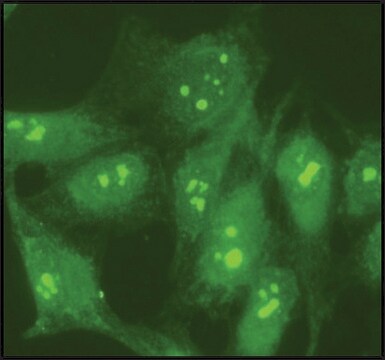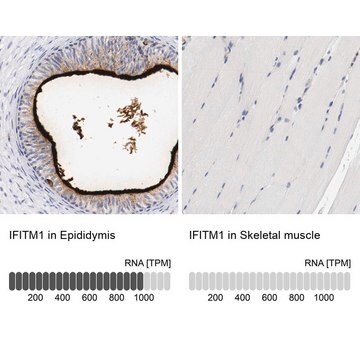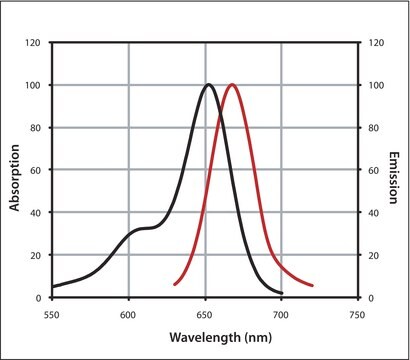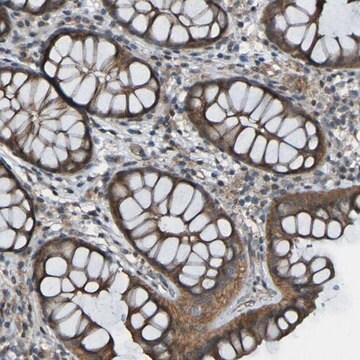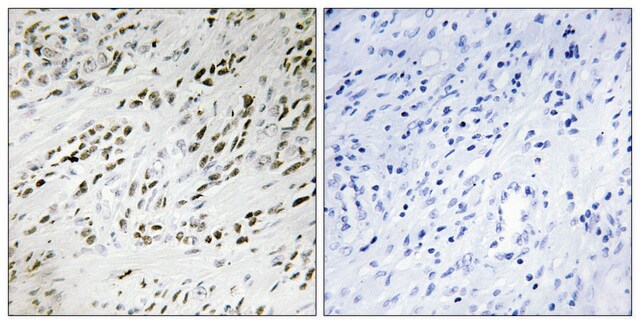MAB1277-I
Anti-Nucleoli Antibody, clone 125-10
About This Item
Produits recommandés
Source biologique
mouse
Niveau de qualité
Conjugué
unconjugated
Forme d'anticorps
purified antibody
Type de produit anticorps
primary antibodies, primary antibodies
Clone
125-10, monoclonal
Produit purifié par
using protein G
Espèces réactives
human
Conditionnement
antibody small pack of 100 μg
Technique(s)
immunocytochemistry: suitable
immunofluorescence: suitable
Isotype
IgG1κ
Séquence de l'épitope
Unknown
Conditions d'expédition
dry ice
Modification post-traductionnelle de la cible
unmodified
Description générale
Spécificité
Immunogène
Application
Evaluated by Immunocytochemistry in A431 cells.
Immunocytochemistry Analysis: A 1:1,000 dilution of this antibody detected Nucleoli in A431 cells.
Tested Applications
Immunocytochemistry Analysis: A representative lot detected Nucleoli in Immunocytochemistry applications (Endo, A., et al. (2009). J Biol Chem. 284(41):27918-27923; Endo, A., et al. (2009). J Cell Sci. 122(Pt 5):678-86).
Immunofluorescence Analysis: A representative lot detected Nucleoli in Immunofluorescence applications (Clements, D., et al. (2007). Am J Physiol Lung Cell Mol Physiol. 292(1):L258-66; Vallee, D., et al. (2004). J Med Genet. 41(10):778-83; Ohno, M., et al. (2002). Chromosoma. 111(3):201-13).
Note: Actual optimal working dilutions must be determined by end user as specimens, and experimental conditions may vary with the end user
Forme physique
Stockage et stabilité
Autres remarques
Clause de non-responsabilité
Code de la classe de stockage
12 - Non Combustible Liquids
Classe de danger pour l'eau (WGK)
WGK 2
Point d'éclair (°F)
Not applicable
Point d'éclair (°C)
Not applicable
Certificats d'analyse (COA)
Recherchez un Certificats d'analyse (COA) en saisissant le numéro de lot du produit. Les numéros de lot figurent sur l'étiquette du produit après les mots "Lot" ou "Batch".
Déjà en possession de ce produit ?
Retrouvez la documentation relative aux produits que vous avez récemment achetés dans la Bibliothèque de documents.
Notre équipe de scientifiques dispose d'une expérience dans tous les secteurs de la recherche, notamment en sciences de la vie, science des matériaux, synthèse chimique, chromatographie, analyse et dans de nombreux autres domaines..
Contacter notre Service technique


